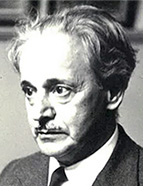

In “ Le sens de l'histoire ’, he therefore already introduced a gradation between three types of facts, reminiscent of the division into event, conjuncture, and structure in force within the Annales “ On pourrait considérer les faits avérés, singuliers, individuels et épisodiques [... ], comme des faits du premier degré; les faits du deuxième degré seraient les termes d ’ une série d ’ éléments analogues, comme “ les découvertes maritimes du seizième siècle ” ; enfin les faits complexes aux noms évocateurs, comme “ renaissance ” , “ féodalité ” , etc., formeraient l ’ ensemble des ‘ faits du troisième degré ’ ” ( OF III , p. 287). While the first are indispensable and with the second one effectively begins to see and, therefore, to know, only the third offer this complex relational cut-out, which makes it possible to justify a posteriori not only the arbitrariness of the selection, but also the commitment to the epistemic power of the adopted perspective. Bearing in mind that this is stated, we would like to stress , in an article published in 1953, it cannot be ruled out that he had had access to Fernand Braudel ’ s La Méditerranée (1949) or at least a detailed account of it .
Finally, by focusing on relationships, such historiography cannot fixate on idiosyncrasy, whether that of the individual personality or that of the collective, if it is equated with an individual or a scheme of opposition between the two. Rather, it must be understood that “ César est le nom anthropomorphique et idolâtre d’un ensemble de faits historiques ” ( OF III , p. 282), in such a way that what matters is the pattern of intelligibility obtained by the maximisation of links and series. Although the noise produced by the dialogue with multiple voices is noticeable in historiography, including those of some of his contemporaries, even leading to a successive revision of Wundt ’ s definition from which he had started, the desire to give epistemological consistency to the Kantian project of a “ history from a cosmopolitan point of view ” seems to prevail in the end. While this philosophical approach to historiographical theorising, in which totality prevails, helps to consolidate the idea of historical science, it can also lead to a less visible recognition of the differentiating effect of contexts and temporalities, from which the practice of H istory would not be able to escape .
This work is financed by national funds through FCT - Foundation for Science and Technology, I.P, in the scope of the projects UIDB/04311/2020 and UIDP/04311/2020.
